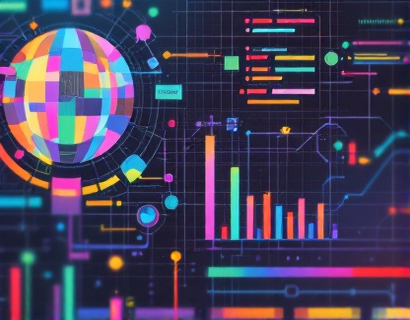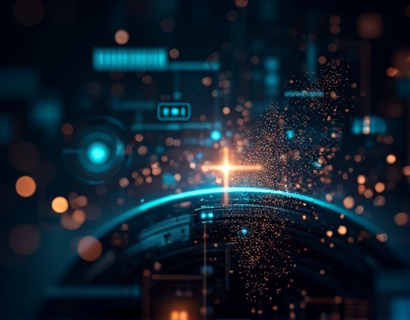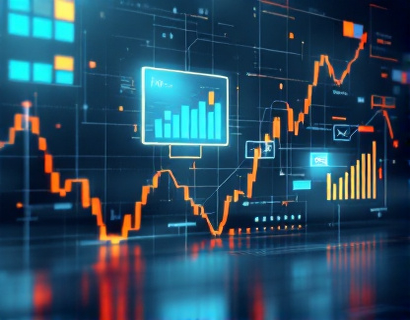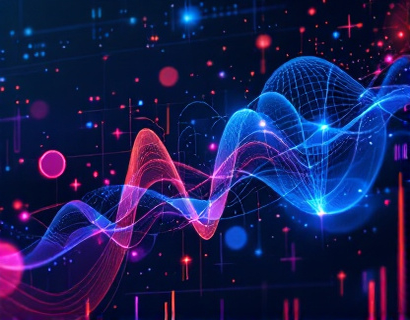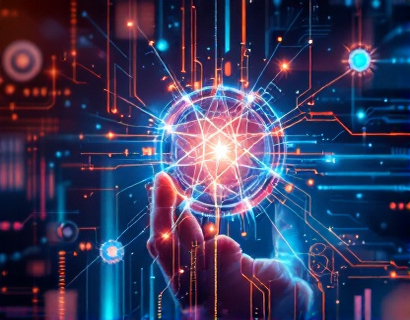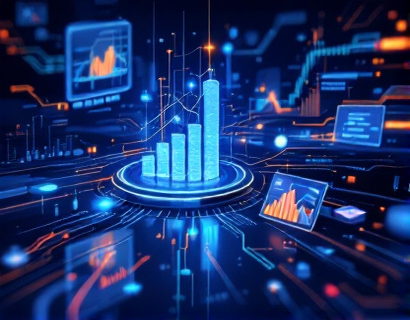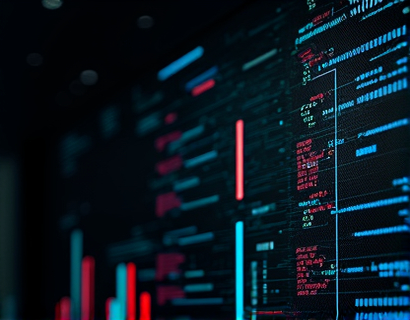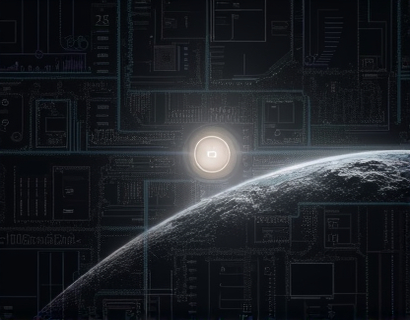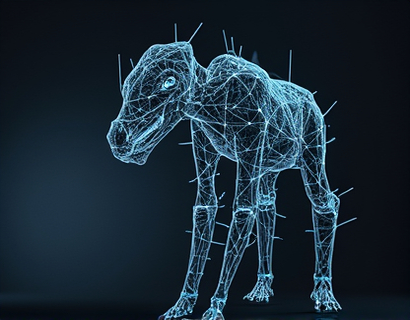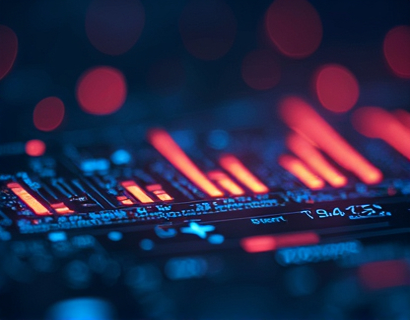Unlocking Digital Innovation: Leveraging AI and Blockchain for Next-Gen Solutions
The intersection of artificial intelligence (AI) and blockchain technology is giving rise to a new era of digital innovation. This convergence is not just a technological curiosity but a transformative force that is redefining how we interact with digital applications and services. By harnessing the strengths of both AI and blockchain, developers and businesses can create seamless, secure, and highly efficient solutions that enhance user experiences and open up new possibilities in various industries.
The integration of AI and blockchain is often referred to as BlockchainAI, a term that encapsulates the synergy between these two cutting-edge technologies. This article delves into the key aspects of BlockchainAI, exploring how the combination of AI's predictive and analytical capabilities with blockchain's transparency and security can lead to groundbreaking applications. Whether you are a tech enthusiast, a business leader, or simply someone interested in the future of digital technology, understanding the potential of BlockchainAI is crucial for staying ahead in the rapidly evolving tech landscape.
Understanding AI and Blockchain
Before diving into the specifics of BlockchainAI, it's essential to have a basic understanding of AI and blockchain individually. Artificial intelligence refers to the simulation of human intelligence processes by machines, particularly computer systems. These processes include learning (the acquisition of information and rules for using it), reasoning (using rules to reach approximate or definite conclusions), and self-correction. AI technologies such as machine learning, natural language processing, and computer vision are already transforming industries from healthcare to finance.
Blockchain, on the other hand, is a decentralized digital ledger technology that records transactions across multiple computers in such a way that the registered transactions cannot be altered retroactively. This technology ensures transparency, security, and immutability, making it ideal for applications that require trust and verification without the need for intermediaries. The combination of these two technologies can lead to solutions that are not only innovative but also robust and trustworthy.
Enhancing Security with Blockchain
One of the most significant advantages of integrating AI with blockchain is the enhanced security it provides. Blockchain's inherent properties make it an excellent foundation for secure data management and transaction processing. Each block in the chain contains a cryptographic hash of the previous block, a timestamp, and transaction data, creating an unbreakable link. This structure ensures that once data is recorded, it cannot be altered without altering all subsequent blocks, which requires consensus from the network.
AI can further bolster this security by detecting and mitigating potential threats in real-time. Machine learning algorithms can analyze patterns and anomalies in blockchain data to identify suspicious activities, such as fraudulent transactions or unauthorized access attempts. By continuously learning from new data, these algorithms become more effective at predicting and preventing security breaches, ensuring that the blockchain remains a secure and reliable platform.
Improving Efficiency through AI
AI's ability to process and analyze vast amounts of data quickly and accurately complements blockchain's transparency and immutability. In a BlockchainAI system, AI can automate and optimize various processes, reducing the need for manual intervention and increasing overall efficiency. For instance, smart contracts, which are self-executing contracts with the terms directly written into code, can be enhanced with AI to perform complex decision-making tasks.
Consider a supply chain management system built on blockchain, where AI algorithms monitor and analyze data from various points in the chain. These algorithms can predict delays, optimize routes, and ensure compliance with regulations, all in real-time. This level of automation not only speeds up processes but also reduces errors and costs, making the entire system more efficient and reliable.
Personalization and User Experience
Another area where BlockchainAI shines is in personalization and user experience. AI's capability to understand and predict user behavior can be combined with blockchain's decentralized identity management to create highly personalized and secure digital experiences. For example, in the realm of entertainment, a BlockchainAI platform can use AI to recommend content based on a user's viewing history while ensuring that the user's data is stored securely on the blockchain.
This approach not only enhances the user experience by providing relevant and tailored content but also gives users greater control over their data. Since the data is stored on a decentralized network, users can choose what information to share and with whom, fostering a more trust-based relationship between users and service providers.
Decentralized Applications (DApps)
Decentralized applications, or DApps, are a prime example of the potential of BlockchainAI. DApps run on a blockchain network and leverage AI to provide advanced functionalities that traditional centralized applications cannot match. These applications are transparent, secure, and resistant to censorship, making them ideal for a wide range of use cases.
In the financial sector, BlockchainAI DApps can offer decentralized lending and borrowing platforms where AI algorithms assess creditworthiness and manage loan terms. This not only democratizes access to financial services but also reduces the risk of fraud and default. In the healthcare industry, DApps can securely store and manage patient data, using AI to analyze medical records and provide personalized treatment recommendations.
Challenges and Considerations
While the potential of BlockchainAI is immense, there are several challenges and considerations that need to be addressed. One of the primary challenges is the technical complexity involved in integrating AI with blockchain. Developers need to have a deep understanding of both technologies to create effective and scalable solutions. Additionally, the computational resources required for AI processes can be substantial, which may impact the efficiency and cost-effectiveness of blockchain-based applications.
Another consideration is the regulatory landscape. As blockchain and AI technologies continue to evolve, regulatory frameworks are still catching up. Ensuring compliance with data protection laws, such as GDPR, while leveraging the benefits of blockchain and AI is crucial. Transparency and accountability in AI decision-making processes are also important to build trust and acceptance among users.
Future Prospects
The future of BlockchainAI is promising, with numerous potential applications across various industries. As the technology matures, we can expect to see more sophisticated and user-friendly solutions that further blur the lines between the physical and digital worlds. The integration of AI and blockchain can lead to innovations in areas such as smart cities, where AI-driven analytics can optimize resource management and enhance public services, all while ensuring data privacy and security through blockchain.
In the realm of Internet of Things (IoT), BlockchainAI can provide a secure and decentralized platform for device communication and data sharing. This can revolutionize industries like manufacturing, logistics, and energy, enabling more efficient and autonomous systems. The combination of AI's predictive capabilities and blockchain's trustless environment can create a new paradigm for interconnected devices and services.
Moreover, the rise of decentralized finance (DeFi) and non-fungible tokens (NFTs) is already demonstrating the potential of BlockchainAI in creating new economic models and value propositions. AI can enhance the functionality of these tokens by providing insights, automating trades, and ensuring secure transactions, opening up new opportunities for investors and creators alike.
Conclusion
The convergence of AI and blockchain is paving the way for a new generation of digital solutions that are more secure, efficient, and user-centric. By leveraging the strengths of both technologies, developers and businesses can create innovative applications that transform industries and enhance user experiences. As the technology continues to evolve, the potential for BlockchainAI to drive digital innovation is limitless. Embracing this convergence is not just a strategic advantage but a necessity for staying relevant in the digital age.




